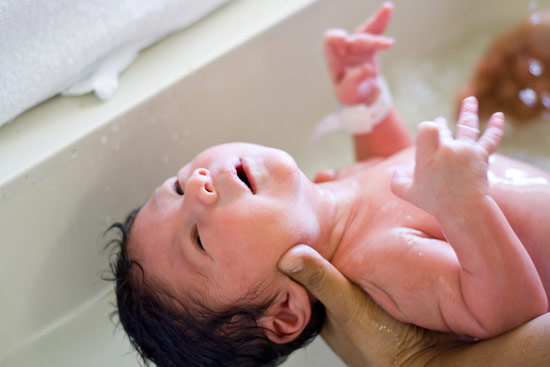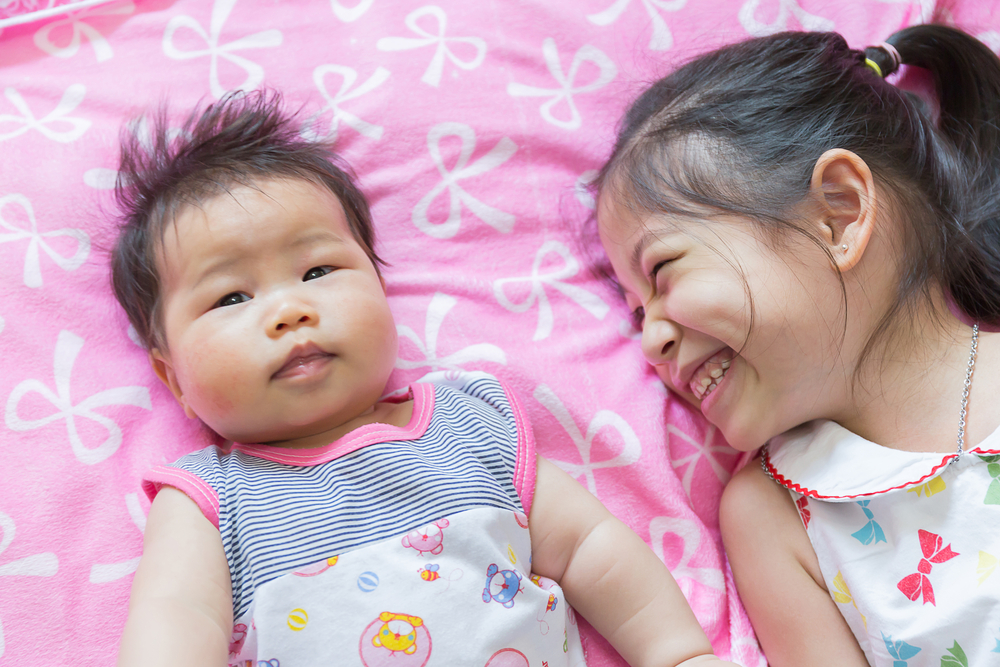Life Stages: Birth
Chinese society welcomes the birth of a child and considers it a joyous event.
Traditional Practices
Mothers only wash newborn babies on the third day after birth, in the presence of friends and relatives who come to view the child. Traditionally, mothers were confined to the house for one month after the delivery, but in today’s frenetic urban China, this is not always possible, since women have to return to work as soon as possible. The Chinese celebrate the First Moon party one month after birth. After 100 days, the family shaves the heads of boys, wraps their hair-clippings in red cloth, and throws the cloth into a river in the belief that this will afford protection to the baby.
Traditionally, Chinese women gave birth with the help of midwives. Since the Communist revolution, however, midwifery has been disappearing in the urban areas, where most births take place in hospitals with the help of obstetricians and skilled attendants. In many rural areas, however, women still give birth at home with the help of elderly women (called "professional midwives") due to their belief in the inauspiciousness of giving birth away from one’s home and village. An increasing number of villages now provide well-equipped clinics, with skilled nurses, to attend to deliveries and to give antenatal and postnatal care. UNICEF figures indicate that most Chinese women had skilled attendants assist at deliveries, a figure which may include village midwifes, too.
Celebrations
The Chinese usually celebrate birthdays on New Year’s Day, regardless of the actual birth date. They call the first birthday of a child the "second birthday," because they believe that the baby is born one year old. On the "second birthday," families place various objects like coins, doll, and books near the baby to see which object it will pick up. Picking up coins means riches in the future, picking up a book indicates future learning, and selecting the doll foretells the bearing of many children.
From the late 20th century into the second decade of the 21st century, the Chinese government actively promoted family planning, implementing coercive policies designed to promote single-child families. In October of 2015, these policies were relaxed to allow families two children. The government has made easily available all kinds of contraceptives and birth control methods, including abortion, and women frequently utilize them. Despite the high usage of permanent forms of birth control, China still has a high abortion rate. The abortion rate among unmarried women also remains high.
Copyright © 1993—2025 World Trade Press. All rights reserved.

 China
China 
